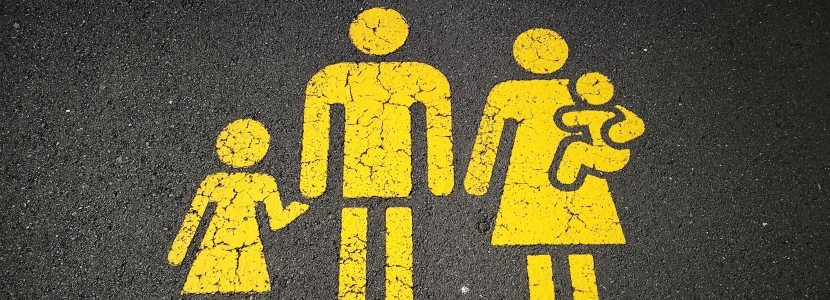
Working families across Croydon can look forward to having more money in their pockets – thanks to a range of new Government measures coming into effect this week.
- Giving 32 million people an income tax cut, including 54,240 people in Croydon Central and 183,482 across the whole of Croydon, meaning people can keep more of what they earn on average £1,205.
- Freezing fuel duty for the ninth successive year saving the typical driver saving the average car driver £1,000 by 2020 compared to Labour’s plans.
- Giving a £690 annual pay increase to over 2.4 million workers through the National Living Wage – benefiting around 167,000 people in London.
- Giving people more dignity and security in their retirement in Croydon by increasing the full State Pension by 2.6 per cent this year, meaning people will get nearly £170 more a year.
From the start of the new tax year on 6 April, the personal allowance and higher rate of income tax will increase. The personal tax allowance will increase to £12,500, an increase of £650 – almost double what it was under Labour. This means a basic rate taxpayer will pay over £1,200 less income tax than they did in 2010, giving people more money in their pockets.
Our income tax cuts have taken 1.74 million of the lowest paid workers out of paying income tax altogether and taken 230,000 people out of the higher rate 40% tax bracket since 2015.
As well as cutting taxes for millions of people a year earlier than planned, fuel duty has been frozen for a ninth year in a row, saving those who use a car to travel to work and visit family thousands of pounds.
From 1 April new rates of the National Living Wage will rise again, from £7.83 to £8.21, a 4.9 per cent increase – handing a full-time worker a further £690 annual pay increase and taking his or her total pay-rise, since the introduction of the National Living Wage, to over £2,750 a year.
Mario Creatura, Parliamentary Candidate for Croydon Central, said:
“The Conservatives have always been committed to keeping taxes down so people can keep more of their hard-earned money, and these measures are good news for 54,240 people in Croydon Central who will see their taxes cut.
“We have once again cut income tax for workers and frozen fuel duty again, meaning a bit more money in people’s pockets at the end of the month. Our increase to the National Living Wage mean millions of the lowest paid will receive a pay rise and people can also look forward to greater security in their retirement through increases to the state pension. We can only continue cutting taxes and increasing pay through our balanced approach to the economy."
We’re cutting taxes for millions of people – so they have more money in their pockets
- We are increasing the Personal Allowance to £12,500 – the amount you earn before you start paying income tax – a year earlier than planned so an average taxpayer will be £1,205 better off than in 2010. We have increased personal allowance every year, cutting taxes, and giving people more money in their pocket. This means a basic rate taxpayer will pay £1,205 less tax in 2019-20 than in 2010-11 (HMT, Budget 2018, 29 October 2018, link).
- We are cutting income tax for 32 million people and taking almost 2 million out of paying income tax altogether, so they can focus on getting on and ahead. Overall, 32 million individuals will see their tax bill reduced in 2019-20 compared to 2015-16 and this will increase the number of tax payers taken out of income tax since 2015-16 to 1.74 million (HMT, Budget 2018, 29 October 2018, link).
- We are increasing the Higher Rate threshold to £50,000 taking 1 million people out of the higher rate of tax. The amount people will have to earn before they pay tax at 40 per cent will increase from £46,350 to £50,000 in April 2019. This means that in 2019-20, there will be nearly 1 million fewer higher rate taxpayers than in 2015-16 (HMT, Budget 2018, 29 October 2018, link).
We’re freezing fuel duty again to help people with the cost of filling up – whilst Labour would increase fuel duty making motorists worse off
- We will freeze fuel duty for a ninth year – helping people with the cost of filling up their car or van. In 2019, fuel duty will remain frozen for the ninth year in a row, saving the average driver £1,000 since 2010 (HMT, Budget 2018, 29 October 2018, link).
- Labour’s Shadow Transport Secretary would increase fuel duty, hitting thousands of motorists with higher costs. He said: ‘Fuel duty, frozen since 2010 at a cost of than £50 billion. Air passenger duty in aviation, broadly frozen over a similar period. Rail and bus fares up by more than a third. This is not a sensible approach to transport policy’ (Andy McDonald speaking at Institute for Government, 20 March 2019, archived).
We’re boosting the pay of the lowest earners thanks to our National Living Wage
- We have introduced and are boosting the National Living Wage giving over 2 million worker a pay rise. From 1 April 2019 the National Living Wage will increase from £7.83 an hour to £8.21. This will benefit around 2.4 million workers and is a £690 annual pay rise for a full-time worker. In total, the annual earnings of a full-time minimum wage worker will have increased by over £2,750 since the introduction of the NLW in April 2016 (HMT, Budget 2018, 29 October 2018, link).
- Thanks to our National Living Wage the lowest earners have seen their wages grow by 8 per cent above inflation since 2015. Supported by the National Living Wage (NLW), the lowest paid have seen their wages grow by 8 per cent above inflation since April 2015 (HMT, Budget 2018, 29 October 2018, link).
- The Resolution Foundation has said that our National Living Wage has caused the biggest fall in low pay in 40 years. According to the Resolution Foundation, or low-paid workers on or near the National Living Wage recent earnings growth is stronger than for higher earners. They say it has ‘led to a significant and welcome boost to the pay packets of Britain’s least well-off workers’ (Resolution Foundation, 27 October 2017, link).
We’re making sure people have dignity in their retirement with a further increase in the state pension
- The full State Pension will increase by 2.6 per cent this year, giving people more dignity and security in their retirement. On 6 April 2019, the basic State Pension will increase by £3.25 a week – giving pensioners £169 more a year. This means that the Government will have raised the full basic State Pension by £1640 a year since 2010. (HMT, Autumn Budget 2018, 29 October 2018, link).
Photo by Sandy Millar on Unsplash


